Menopausal syndrome, referred to in Traditional Chinese Medicine (TCM) as premenopausal and postmenopausal symptoms, is often caused by a deficiency of Yang energy or the invasion of external cold and dampness. Excessive consumption of cold foods, overindulgence in cooling activities, excessive sexual activity, or simply aging can lead to a decline in Kidney Yang. The kidneys are the foundation of the body’s organs, and Kidney Yang governs the Yang energy of the entire body. Kidney Yang deficiency is commonly observed in menopausal syndrome.

1
How to determine if it is Kidney Yang deficiency?
According to the Su Wen: On Regulating Menstruation: “When Yang is deficient, there is external cold.” Yang deficiency leads to internal cold. The most typical manifestation of Yang deficiency is a fear of cold. The functional decline of the organs is a sign of organ Yang deficiency. Kidney Yang deficiency often coexists with Spleen Yang deficiency. Symptoms of Kidney Yang deficiency during menopause include: heavy menstrual flow before and after menopause, pale and dark menstrual blood, or irregular bleeding; fatigue, dull complexion, cold pain in the lower back, frequent clear urination, or facial swelling and limb edema; pale tongue, or a swollen tongue with tooth marks, thin white coating, and a deep, thin pulse.
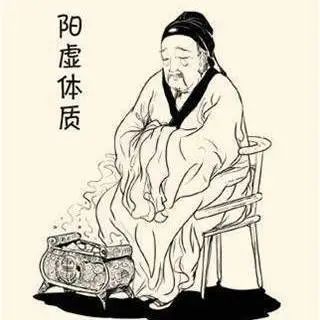
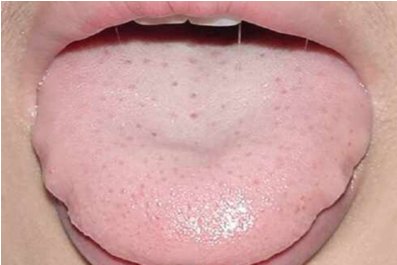
2
How to regulate Kidney Yang deficiency during menopause?
1. Regulate emotions, engage in moderate outdoor exercise, bask in the sun, balance work and rest, maintain a regular lifestyle, eat nutritious meals at set times, ensure adequate sleep, avoid staying up late, develop a habit of sleeping early, preferably before 10 PM, and avoid excessive fatigue and stress. Pay attention to supplementing vitamins and minerals. Avoid consuming cold foods; it is recommended to let refrigerated foods return to room temperature before consumption.

2. Dietary therapy: Based on individual conditions, consume warming and tonifying foods such as Dang Gui (Angelica Sinensis), Ba Ji Tian (Morinda Root), Rou Cong Rong (Cistanche), Du Zhong (Eucommia Bark), Lu Rong (Deer Antler Velvet), Lu Jiao Jiao (Deer Horn Glue), and lamb. Although dietary therapy is relatively safe, it is still necessary to differentiate symptoms, and long-term use should be guided by a physician.
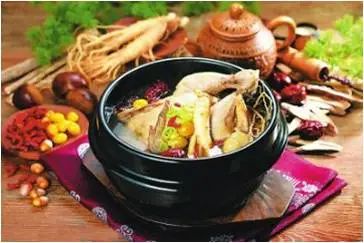
Four recommended dietary therapies are as follows:
① Dang Gui, Ginger, and Lamb Soup: One pound of lamb, 1 ounce of Dang Gui (Angelica Sinensis), and 2 ounces of ginger. Clean the Dang Gui and soak it in water until soft. Clean and slice the ginger. Remove the membranes from the lamb, blanch it in boiling water to remove blood, then slice it. Place the Dang Gui, ginger, and lamb in a clay pot, add water and yellow wine, bring to a boil, skim off the foam, then simmer on low heat until the lamb is tender. Season with salt and other condiments before serving. This soup is beneficial for nourishing Qi and blood, warming the middle, and tonifying the kidneys, suitable for those with Yang deficiency and blood deficiency during menopause.
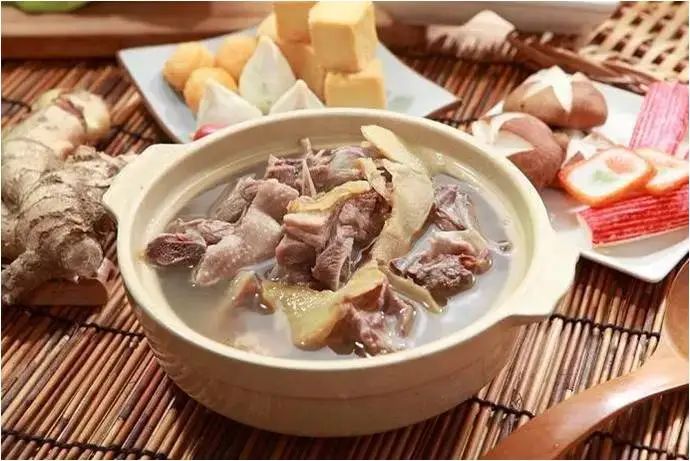
② Ba Ji Tian and Rou Cong Rong Chicken: 15 grams each of Ba Ji Tian (Morinda Root) and Rou Cong Rong (Cistanche), one young chicken, and appropriate amounts of ginger, Sichuan pepper, and salt. Wrap the Ba Ji Tian and Rou Cong Rong in gauze, clean the chicken, cut it into pieces, and simmer with water along with the ginger, Sichuan pepper, and salt for seasoning. After removing the gauze, consume the soup and meat. This dish is effective for tonifying Kidney Yang and benefiting essence and blood, suitable for those with Kidney Yang deficiency during menopause.
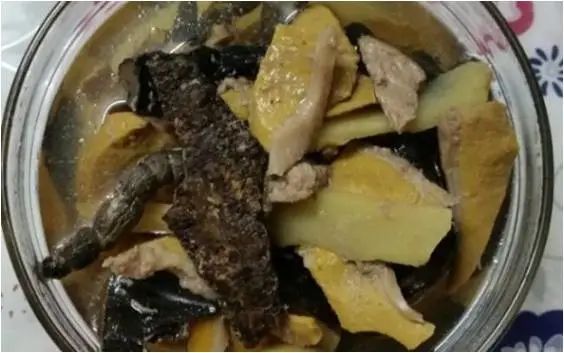
③ Fu Pian and Carp Soup: 15 grams of Fu Pian (Prepared Aconite) and one carp (about 500 grams). Boil the Fu Pian in water for 2 hours, then cook the carp in the medicinal broth, adding ginger, scallions, salt, and MSG. This is suitable for menopausal women experiencing dizziness, tinnitus, lower back pain, lower limb edema, preference for warmth and aversion to cold, clear and cold vaginal discharge, abdominal cold pain, and pale complexion.
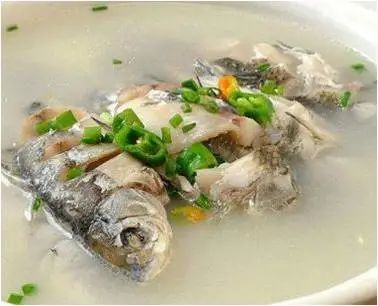
④ Yi Zhi Ren Porridge: 5 grams of Yi Zhi Ren (Alpinia Oxyphylla), 50 grams of glutinous rice, and a pinch of salt. Grind the Yi Zhi Ren into powder, add it to the porridge after cooking the glutinous rice, and add a little salt. Cook briefly and consume warm for breakfast and dinner. This is suitable for those with Spleen and Kidney Yang deficiency, abdominal cold pain, dull complexion, frequent urination, and enuresis before and after menopause.
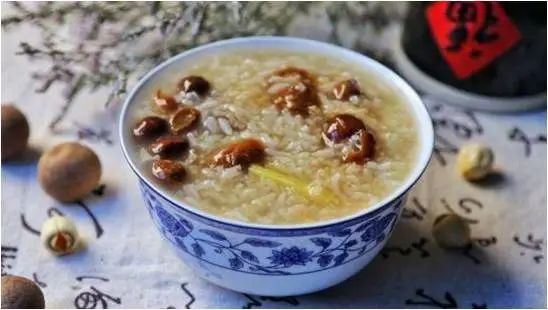
3. Medicinal therapy: For significant symptoms, it is recommended to consult a specialist in menopausal health. For milder symptoms, one may use TCM patent medicines or treatments under the guidance of a TCM practitioner. If the effects are unsatisfactory, a full-body examination is recommended, and the physician will decide whether to use hormone replacement therapy. During hormone replacement therapy, it is essential to strictly follow the physician’s instructions for regular check-ups and follow-ups.

Images: All sourced from the internet
Text: Li Limei
Reviewed by: Xia Jianhong
Edited by: Liu Huijuan
Women’s Health Department
Guangdong Province’s High-Level Clinical Key Specialty, with a National-Level Menopausal Health Specialty. This department provides comprehensive women’s health services throughout their life cycle, including education, consultation, screening, monitoring, intervention guidance, and long-term follow-up management. It also undertakes technical guidance, training, and management for women’s health services across the province, assisting the government in implementing major public health service projects related to women’s health. It is a comprehensive clinical health specialty integrating clinical practice, research, teaching, and public health management.
Current services offered by the department: Screening and intervention for common gynecological diseases, adolescent health, pre-marital and pre-pregnancy health, early pregnancy health, postpartum health, menopausal health, nutritional guidance for women at various stages, weight management, osteoporosis screening and intervention, psychological health for women, pelvic floor health, and breast health.
Specialty Services:
National-Level Menopausal Health Specialty
Adolescent Health Specialty
Women’s Psychological Specialty
Women’s Nutrition/Weight Management Specialty
Breast Health Specialty
Pelvic Floor Rehabilitation Specialty
Service Hours: Open Monday to Sunday
Service Location: Panyu Campus: First Floor, Health Building
Guangdong Provincial Maternal and Child Health Hospital Website: http://www.e3861.com/; Appointment and Registration Service Consultation Phone (registration, recharge, refund, cancellation, etc.): 020-39151611, 61118611 Appointment registration, payment, and examination inquiry service WeChat: WeChat public account “Yue Maternal and Child Health” Address: No. 521, 523 Xingnan Avenue, Panyu District, Guangzhou, Guangdong Province
Scan to follow for more information


Women’s Health Department |
A useful public account
Yue Maternal and Child Health |
Appointment, registration, inquiry

